Open Call – School of Common Knowledge
MSU (Zagreb), Van Abbemuseum (Eindhoven), MG+MSUM (Ljubljana), ZRC SAZU (Ljubljana) and L'Internationale invite applications for the new School of Common Knowledge (SCK) to be held in Zagreb and Ljubljana 24–29 May 2024. The School of Common Knowledge draws on the network, knowledge and experience of the L’Internationale museum confederation. Its ambition is to be both nomadic and situated, looking at specific cultural and geopolitical situations while exploring their relations and interdependencies with the rest of the world. The SCK is built on the basis laid by the Glossary of Common Knowledge project initiated by Zdenka Badovinac and Moderna galerija (Ljubljana) and continues its co-learning methodology.
This first pilot gathering of the SCK in Zagreb and Ljubljana will shape the future development of the project. It is planned as a six-day programme that offers an intensive experience of the possibilities of art in the 21st century through discussion, action, affection and reflection.
Participants are invited from art, design, architecture and curating but also from related fields such as sociology, political science and anthropology. One can be at any stage in one’s academic or professional career. One should be prepared to contribute one’s own experiences, thoughts and project proposals as well as listen to others.
The pilot programme will speak from central Europe and the western Balkans. The region has created and sustained specific ways of responding to and against globalisation and political hegemonies, as well as alternative ways of engaging with other parts of the world. Unique social models and imaginaries developed here, together with the region’s particular relations to coloniality and imperiality, are useful to reconsider in the light of present conflicts. The programme will offer ways to explore these topics through the voices and experiences of artists and cultural workers grounded in decolonial practices.
The curriculum for this pilot programme will focus on two proposals:
–Exploring situated organisations as actors in the (art) world and as sites from which to speak about translocal connections. The programme will challenge universalism and globalism in culture as forces that serve particular class and cultural interests.
–Investigating and co-learning how to resist and transform the alliance of neo-liberal and neo-fascist forces that have established huge influence in world politics and its military, economic and cultural policies.
The SCK will have access to the collections of the Museum of Contemporary Art in Zagreb, and Moderna galerija in Ljubljana, which largely contain works by artists from the Balkans and the wider Eastern European region. Similarly, the social and political histories of socialist Yugoslavia and the Non-Aligned Movement will be addressed. We will explore decolonisation, anti-fascist struggles and anti-war narratives up to today. A number of situated organisations and individuals from the Balkan region will narrate their practices of cultural production and the possibilities that emerge from them. Many of these organisations were shaped by post-war experiences in the 1990s and can therefore directly reflect on anti-war and peace initiatives today.
The school will engage in different co-learning practices including lectures; visits to exhibitions, collections and archives; walks and physical exercise; site-related experiences; and times of silence. Learning from the Glossary of Common Knowledge, participants will be invited to propose terms and referential fields that will help us to understand the present and suggest ways to generate collective agency. The ambition is to build a small temporary community that can learn to trust and antagonize each other through exchange and shared experiences.
Participation is free. A contribution of €250 per participant will cover all lunches, dinners and travel from Zagreb to Ljubljana and back. Travel to Zagreb and accommodation in both cities will need to be covered by applicants themselves. Lectures and workshops will be held in English. Please send a biography and a short (500 word max.) motivation letter by 10 March to: APPLICATION. Successful applicants will be informed by 20 March.
In the longer-term, SCK is conceived as a nomadic school connected to the L’Internationale confederation. Its focus is on building relations between concepts, experiences and activities and how these links develop new forms of understanding and knowledge. The curriculum of the school will make use of the online Glossary of Common Knowledge.
Future School of Common Knowledge programmes are planned to take place at MACBA (Barcelona) and Museo Reina Sofía (Madrid). The programmes there will take account of the time and space at that moment. SCK is a project of the L'Internationale Museum of the Commons project and a continuation of the long-term project Glossary of Common Knowledge.
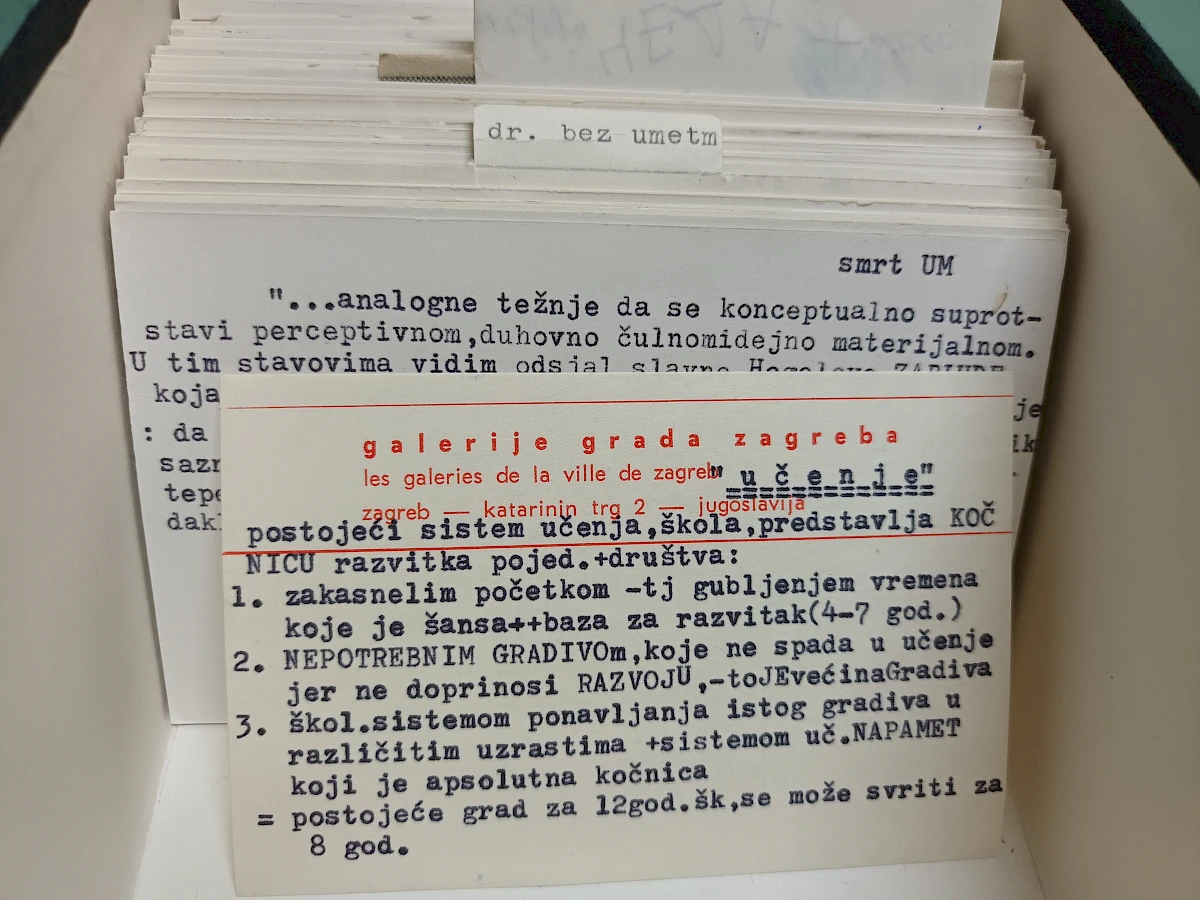
Dimitirije Bašičević Mangelos, Notes, 1970s. Courtesy of Mario Bruketa and Museum of Contemporary Art Zagreb.
Notes
Glossary of Common Knowledge (GCK)
Prior to its two editions, the Glossary of Common Knowledge (GCK) was described as a compilation of art terminology that differed significantly from what was found in existing art literature. It has been a nine-year research project carried out by Moderna galerija (MG+MSUM) within the framework of L'Internationale. In collaboration with institutions and individuals from Europe and other parts of the world, over 100 contributors/narrators proposed terms related to their own practices and contexts, historical references, political or social situations, or L'Internationale projects. The terms were discussed and defined around six referential fields (Historicization, Subjectivisation, Geopolitics I, Geopolitics II, Constituencies, Commons and Other Institutionalities). The first volume of terms was published as a book in 2018, and the second volume in 2022. The books follow the referential fields in six chapters. The narrators created a plurality of voices and narratives that examine the proposed terms and add their different perspectives from Europe and elsewhere, bringing with them overlooked and suppressed knowledge as well as different categories of thought and memory. This method allowed for different ways of participating, sharing and using the knowledge and collaborating trans-globally. The Glossary of Common Knowledge was curated by Zdenka Badovinac, Bojana Piškur and Jesús Carrillo.
Participants
Keynote speakers:
Leonida Kovač, Associate Professor at the University of Zagreb Academy of Fine Arts
Tomaž Mastnak, Emeritus Director of Research at the Institute of Philosophy, Research Centre of the Slovene Academy of Sciences and Arts
Ovidiu Tichindeleanu, a philosopher and a cultural theorist, Tranzit, Bucharest
Invited participants and organisations:
Sezgin Boynik, Pykë-Presje. The platform Pykë-Presje from Prizren is focused on internationalist and revolutionary documents and archives, emphasising local histories of people's movements, gender emancipation and class consciousness that defy nation-state narratives.
Irfan Hošić, University of Bihać / KRAK Center. KRAK emerged from the specific political, social and cultural circumstances of the neglected industrial past, ethno-national conflict, post-war trauma, poverty and depopulation.
Natalija Vujošević, the Museum of Contemporary Art of Montenegro, Podgorica
Beti Žerovc, a professor at University of Ljubljana, Art History department
Crvena, Sarajevo, is an organisation focused on women's social position, production and management of natural and social resources, political decision-making, everyday life, work and neighbourhood relations, and art and creativity.
BLOK, Zagreb, is a curatorial collective that works on the democratisation of art and culture and the articulation of resistance to the processes of their privatisation through production and research of socially engaged art, publishing, political and artistic education, and cultural workers organising.
Krater, Ljubljana is a temporary production space that emerged from an abandoned, crater-like construction site near the centre of Ljubljana. It functions as a prototype mechanism for the regeneration of the earth's surface, creating new worlds on the ruins of urban ecosystems.
Živi atelje DK, Zagreb – “Živi,” or Living, refers to a living organism that develops, communicates, adapts itself and shapes the environment. “Atelje,” or Atelier, is a center of creation, experiment, comradeship and collaboration. “DK” refers to the initials of the surname of the artist and academic sculptor, Vera Dajht-Kralj, whose heritage represents inspiration and the axis around which the collective’s activites are based.
L’internationale community participants:
Nick Aikens, L’Internationale
Zdenka Badovinac, SCK curator
Marco Baravalle, IRI, Venezia
Manuel Borja Villel, L’Internationale Association
Sara Buraya Bonet, Reina Sofia, Madrid
Charles Esche, Van Abbemuseum, Eindhoven
Sabel Gavaldon, MACBA, Barcelona
Jasna Jakšić, MSU, Zagreb
Bojana Piškur, MG+MSUM, Ljubljana
Ana Škegro, MSU, Zagreb
Mabel Tapia, L’Internationale Association
Related activities
-
–Van Abbemuseum
The Soils Project
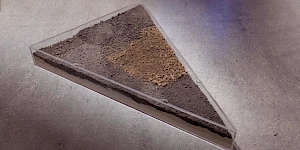
‘The Soils Project’ is part of an eponymous, long-term research initiative involving TarraWarra Museum of Art (Wurundjeri Country, Australia), the Van Abbemuseum (Eindhoven, Netherlands) and Struggles for Sovereignty, a collective based in Yogyakarta, Indonesia. It works through specific and situated practices that consider soil, as both metaphor and matter.
Seeking and facilitating opportunities to listen to diverse voices and perspectives around notions of caring for land, soil and sovereign territories, the project has been in development since 2018. An international collaboration between three organisations, and several artists, curators, writers and activists, it has manifested in various iterations over several years. The group exhibition ‘Soils’ at the Van Abbemuseum is part of Museum of the Commons. -
–Van Abbemuseum
Maria Lugones Decolonial Summer School
Recalling Earth: Decoloniality and Demodernity
Course Directors: Prof. Walter Mignolo & Dr. Rolando VázquezRecalling Earth and learning worlds and worlds-making will be the topic of chapter 14th of the María Lugones Summer School that will take place at the Van Abbemuseum in Eindhoven.
-
Institute of Radical ImaginationMSU Zagreb
Red, Green, Black and White
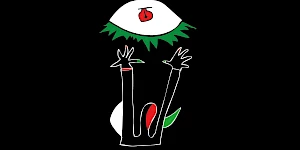
A performative inquiry by Institute of Radical Imagination and MSU Zagreb
-
–Moderna galerijaZRC SAZU
Summer School: Our Many Easts
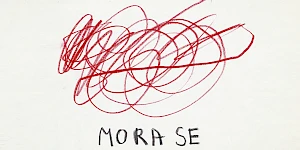
Our Many Easts summer school is organised by Moderna galerija in Ljubljana in partnership with ZRC SAZU (the Research Centre of the Slovenian Academy of Sciences and Arts) as part of the L’Internationale project Museum of the Commons.
-
–Moderna galerijaZRC SAZU
Open Call – Summer School: Our Many Easts

Our Many Easts summer school takes place in Ljubljana 24–30 August and the application deadline is 15 March. Courses will be held in English and cover topics such as the legacy of the Eastern European avant-gardes, archives as tools of emancipation, the new “non-aligned” networks, art in times of conflict and war, ecology and the environment.
-
–MSU ZagrebVan AbbemuseumModerna galerijaZRC SAZU
Open Call – School of Common Knowledge
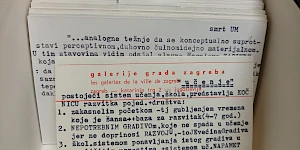
MSU (Zagreb), Van Abbemuseum (Eindhoven), MG+MSUM (Ljubljana), ZRC SAZU (Ljubljana) and L'Internationale invite applications for the new School of Common Knowledge (SCK) to be held in Zagreb and Ljubljana 24–29 May 2024. The School of Common Knowledge draws on the network, knowledge and experience of the L’Internationale museum confederation. Its ambition is to be both nomadic and situated, looking at specific cultural and geopolitical situations while exploring their relations and interdependencies with the rest of the world. The SCK is built on the basis laid by the Glossary of Common Knowledge project initiated by Zdenka Badovinac and Moderna galerija (Ljubljana) and continues its co-learning methodology.
-
–MSU ZagrebVan AbbemuseumModerna galerijaZRC SAZU
School of Common Knowledge 2024

School of Common Knowledge draws on the network, knowledge and experience of the L’Internationale museum confederation. Built on the basis laid by the Glossary of Common Knowledge, a project initiated by Zdenka Badovinac and Moderna Galerija in Ljubljana, it continues its co-learning methodology. Its ambition is to be both nomadic and situated, looking at specific cultural and geopolitical situations while exploring their relations and interdependencies with the rest of the world.
-
Moderna galerija
Book Launch: Collective Study in Times of Emergency, Ljubljana
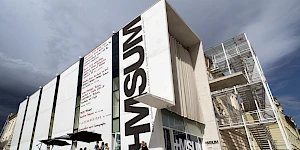
with Nick Aikens (L'Internationale Online / HDK-Valand), Bojana Piškur (MG+MSUM) and Martin Pogačar (ZRC SAZU)
Related contributions and publications
-
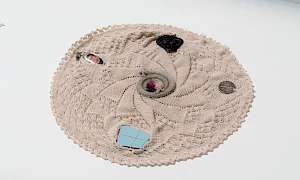
Decolonial aesthesis: weaving each other
Charles Esche, Rolando Vázquez, Teresa Cos RebolloThe Soils ProjectClimateVan Abbemuseum -
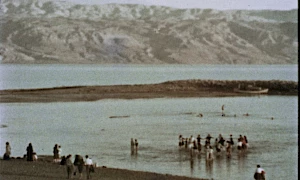
The Kitchen, an Introduction to Subversive Film with Nick Aikens, Reem Shilleh and Mohanad Yaqubi
Nick Aikens, Subversive FilmlumbungPast in the PresentVan Abbemuseum -
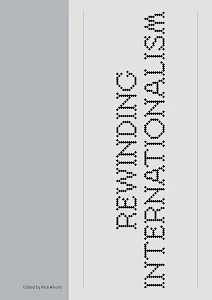
Rewinding Internationalism
Van Abbemuseum -
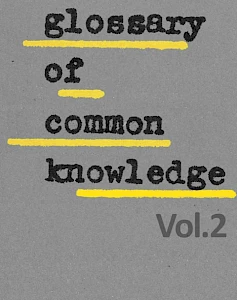
Glossary of Common Knowledge, Vol. 2
School of Common Knowledge -
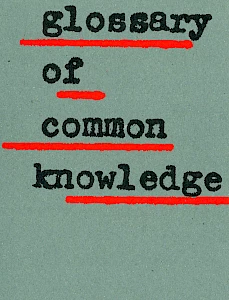
Glossary of Common Knowledge
School of Common Knowledge -
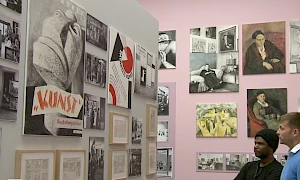
A dialogical tour through the exhibition The Making of Modern Art
Steven ten Thije, Quinsy GarioDialoguesVan Abbemuseum -
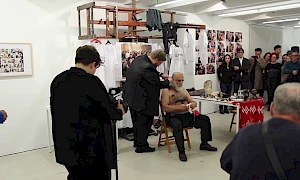
Performances from the opening of The Heritage of 1989. Case Study: The Second Yugoslav Documents Exhibition
Jusuf Hadžifejzović, Azra Akšamija, Ilija ŠoškićDialoguesModerna galerija -
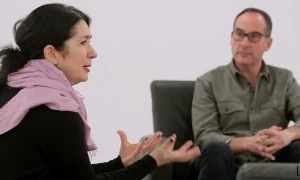
Epistemologies of the South
Zdenka Badovinac, Jesús Carrillo, Patrick FloresDialoguesModerna galerija -
Art Museums and Democracy
Charles Esche, Manuel Borja-Villel, Bart de BaereDialoguesM HKAVan AbbemuseumMuseo Reina Sofia -
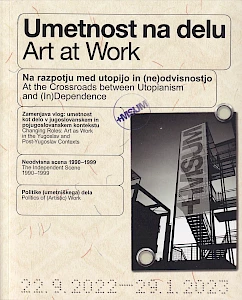
Art at Work – At the Crossroads between Utopianism and (In)Dependence
Moderna galerija -
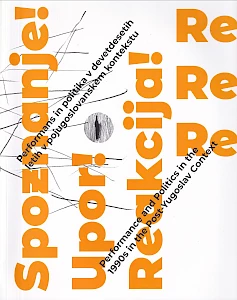
Realize! Resist! React! – Performance and Politics in the 1990s in the Post-Yugoslav Context
Moderna galerija -
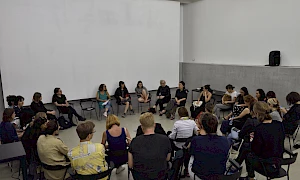
»We should never abandon the possibility of our active presence«
Zdenka Badovinac, Ieva Astahovska, Bermet Borubaeva, Darja Filippova, Nika Ham, Dorota Michalska, Radek Przedpełski, Ekaterina VorontsovaModerna galerija -
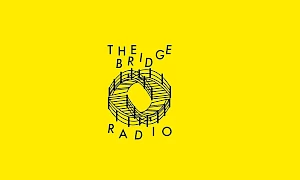
Our Movements Are Loud
Bridge RadioModerna galerijaHDK-Valand -
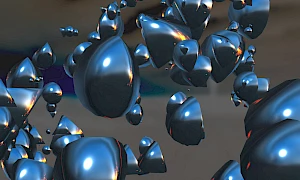
Tuning, Bias, and the Wild Beyond
Nora Akawi, Khyam AllamiModerna galerijaHDK-Valand -
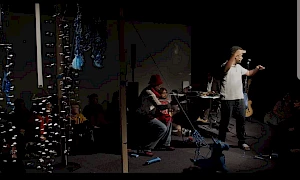
How to prepare for a hurricane, pt. 2
Quinsy GarioVan Abbemuseum -
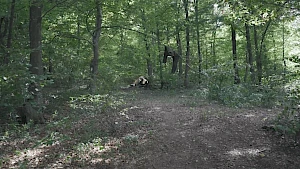
Newsreel 65 – “We have too much things in heart…”
Moderna galerija -
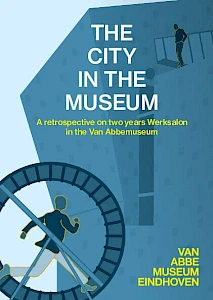
The City in the Museum. A retrospective on two years Werksalon in the Van Abbemuseum
Van Abbemuseum -
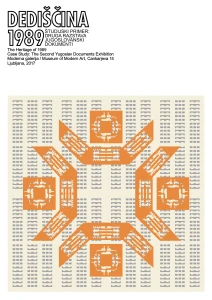
The Heritage of 1989. Case Study: The Second Yugoslav Documents Exhibition
Moderna galerija -
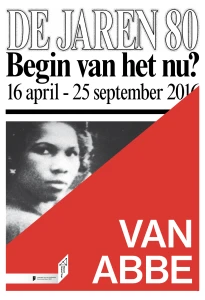
The 1980s. Today's Beginnings? An alternative view on the 80s
Van Abbemuseum -
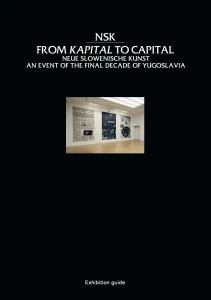
From Kapital to Capital. Neue Slowenische Kunst – an Event of the Final Decade of Yugoslavia
Moderna galerija -
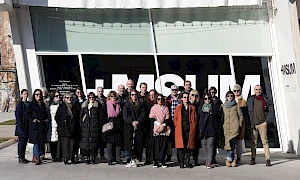
Museums under Political Control
Workers from Moderna galerijaModerna galerija -

Indra's Web
Vandana Singh... and the Earth alongPast in the PresentClimateZRC SAZU -
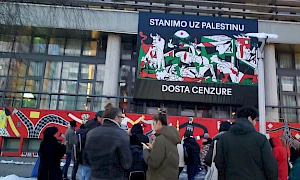
The Silence Has Been Unfolding For Too Long
The Free Palestine Initiative CroatiaTowards Collective Study in Times of EmergencyPast in the PresentSituated OrganizationsInstitute of Radical ImaginationMSU Zagreb -
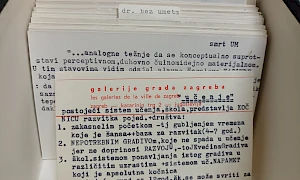
Reading list: School of Common Knowledge 2024
School of Common KnowledgeSchool of Common KnowledgeSituated OrganizationsMSU ZagrebModerna galerijaZRC SAZU -

War, Peace and Image Politics: Part 1, Who Has a Right to These Images?
Jelena VesićPast in the PresentZRC SAZU -
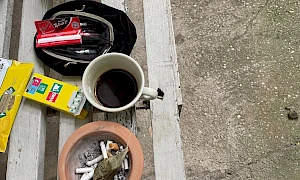
Dispatch: In between the lessons. Staying together in uncertain times, laughing in the face of trouble, and disobeying; the future belongs to us
Antonela SoleničkiSchool of Common KnowledgeSituated OrganizationsMSU ZagrebModerna galerijaZRC SAZU -
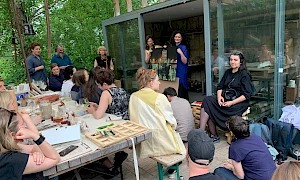
Dispatch: The Commonsverse and Situated Organisations – or why the era of big institutions will come to an end
Denise PolliniSchool of Common KnowledgeSituated OrganizationsMSU ZagrebModerna galerijaZRC SAZU -
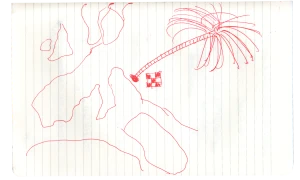
Dispatch: A Buriti Tree
Lucas PrettiSchool of Common KnowledgeMSU ZagrebModerna galerijaZRC SAZUSituated Organizations -
Dispatch: To whom it may concern – the voice of the censor and re-calibrating words as an act of survival
AnonymousSchool of Common KnowledgeSituated OrganizationsMSU ZagrebModerna galerijaZRC SAZU -
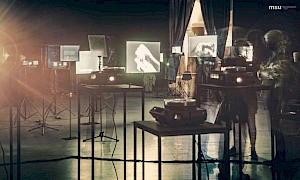
Rethinking Comradeship from a Feminist Position
Leonida KovačSchool of Common KnowledgeSituated OrganizationsMSU ZagrebModerna galerijaZRC SAZU -
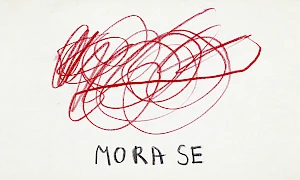
Reading list - Summer School: Our Many Easts
Summer School - Our Many EastsPast in the PresentModerna galerija -
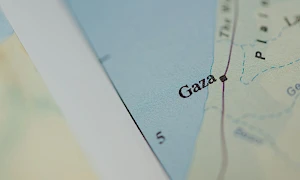
Forget ‘never again’, it’s always already war
Martin PogačarTowards Collective Study in Times of EmergencyPast in the PresentZRC SAZU -
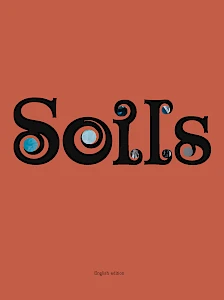
Soils
The Soils ProjectClimateVan Abbemuseum